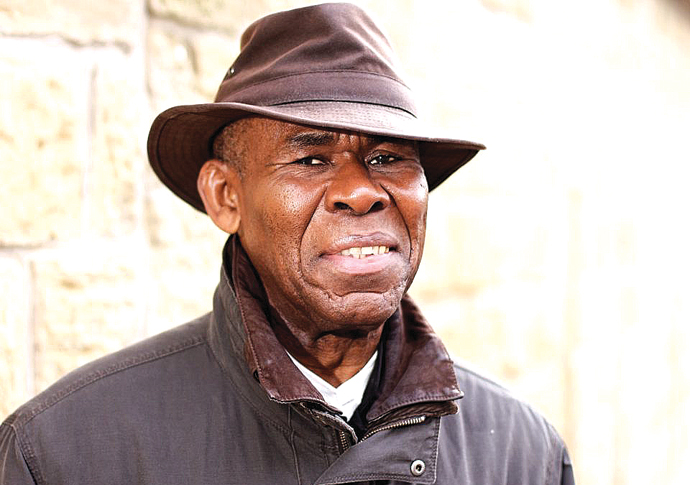Empirical evidence
Never one to hold back, Professor Gus John tells Angela Cobbinah why he’s not keen on the ‘Windrush narrative’
Thursday, 26th October 2023 — By Angela Cobbinah

Professor Gus John
CIVIL rights leader, commentator, author, eminence grise… Professor Gus John can be described as many things but whatever you do, don’t call him a member of the Windrush generation.
Hot off the press, his latest book is a broadside against what he calls the “Windrushisation” of the UK’s black community, saying it is a falsification of history.
“The Windrush narrative is claiming too much for itself,” he declares. “By projecting the arrival of the Empire Windrush and those on board as the start of multiracial Britain it is excluding African and Asian people who are also part of the migration story. It also ignores the fact that there was a settled black presence in Britain long before the Windrush arrived in 1948. As such it is ahistorical and inaccurate.”
The book’s title, Don’t Salvage the Empire Windrush, is a reference to the campaign to raise £2 million to recover the ship’s anchor from the depths of the Mediterranean, where it sank in 1954 following an engine fire.
“They want to turn it into a monument,” he adds indignantly over the phone from Cardiff, where he now lives.
“That angered me but what incensed me more than anything was the 70th anniversary commemoration of the Windrush’s arrival in Westminster Abbey in 2018. That took place at precisely the time that I and others were overwhelmed with requests from people for legal advice because the government was wreaking havoc on their lives with its ‘hostile environment’ immigration policy, people who had been going to their doctors for 40 years and then told they were no longer entitled to NHS treatment. Then people went to Downing Street to drink wine and eat canapés.
“How can you do that when the government is treating people in such a barbaric way?”
He says this and more in a withering open letter to prime minister Theresa May, published in the book, declining to join her at No10 for the reception, and in another to Michael Gove and Floella Benjamin explaining why he wouldn’t be attending the unveiling of the Windrush memorial at Waterloo station in 2022.
Elsewhere, he rails against the seemingly virtuous state initiatives aimed at addressing diversity and inclusion but which signally fail to shift the “systemic racism that is becoming more and more embedded in British society”.
It will not be the first time that Gus John has ruffled feathers – and it won’t be the last. Never one to mince his words and with a stern public persona to boot, he has been a thorn in the side of successive governments from his position on the front line of the anti-racist struggle for the last six decades, a post he did not relinquish even as he became director of education for Hackney Council in 1989.
Yet when he came here from Grenada in 1964 aged 19 it was to continue theological studies with the Dominican Order with a view to becoming a priest. That didn’t last long. After joining a Christian Marxist group, he broke with the friars to eventually become a youth worker.
Quickly establishing himself as a force to be reckoned with in the country’s burgeoning civil rights movement, he has been associated with all its major milestones and figures and today is regularly hailed as one of its elder statesmen.
Several of those he has worked with over the years are paid homage to in another title just out now, Blazing Trails. Some of you will be familiar with likes of John La Rose, who founded New Beacon Books, the first black publishing house, and Cy Grant, who went from matinee idol to cultural activist. But most come under the category of unsung heroes, people who dedicated themselves to fighting for social justice because they knew what had to be done. His 22 tributes include the teacher
Trevor Carter, publisher Jessica Huntley and Tina Sylvester of the Black Parents Movement.
“The book grew out of a conversation I was having with a very talent young black graduate about New Beacon Books and black supplementary schools that started out in the 1960s. He had not only not heard of New Beacon, he had never heard of supplementary schools either. Youngsters like him are going to Russell Group universities but totally ignorant that a civil rights movement took place in the UK involving Caribbean, African and Asian people.
“Many of them have no active connection with the lands their parents came from and we need to assist them in understanding what has gone before.”
Education remains his abiding passion and he is chair of Communities Empowerment Network, which does a lot of work around school exclusions, a problem he says that is getting worse for black children, particularly in academies.
Yet the escalating casualty rate has no bearing on a school’s ranking: “Ofsted can give an Outstanding status to a school that has a high rate of exclusions,” he points out ruefully.
It is an example he says of how the “Windrush generation” and its descendants continue to be pushed to the margins of society while being “adorned with British Empire gongs”. Needless to say, when asked by Tony Blair to accept a CBE in 2000 he flatly refused.
• Don’t Salvage the Empire Windrush and Blazing Trails: Stories of a Heroic Generation are both published by New Beacon Books.